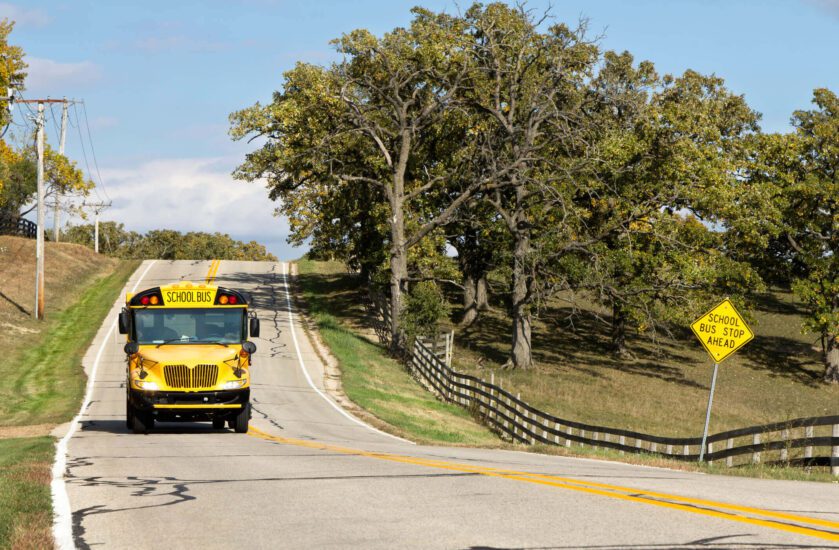What are the common challenges of education in rural areas?
Around half of America’s school boards are in rural areas, with so much of our country’s future educated in rural areas it can be shocking that these areas are so under-served.
Problems of Eduation in Rural Areas Include:
- Physical distance of students to school
- Difficulty finding teachers interested in relocating
- Poor internet connection
- Poverty
- Educators required to be entrepreneurial
Physical distance of Students to School
City dwellers may reasonably expect to be able to walk their kids to school (or for their older kids to walk themselves), but in rural areas this is frequently impossible.
Catchment areas can be very large, making it absolutely essential to arrange a ride to school.
Time spent on school buses may easily be counted in the hours per day, while depending on those buses can often mean limited access to after-school activities and sports.
Studies have linked long bus times to lowered educational outcomes.
But what can be done for education in rural areas? The most direct solution would be to build more schools in order to shrink ride times, but in reality, rural schools are being shut down and bus rides are getting even longer.
Not only do these drive times hurt grades and after-school activities, they also make it harder to get extra help. Tutor Doctor offers in-home and online, one-on-one tutoring to combat this common problem facing rural schools, but other sources of support can be difficult to access due to distance.
Teacher hiring
In many urban areas, there is a glut of talented teachers but not enough jobs available to employ them. In rural areas, though, it can be extremely difficult to attract great teachers.
Indeed hiring in general is tougher in rural areas, for fields extending far beyond education.
Rural life isn’t for everyone, and a life that’s simpler can seem to some people like a life that’s “less than”.
Many services such as health care can be harder to obtain, there may be fewer cultural attractions compared to big cities — the list of reasons why teachers may be dissuaded from applying for educational jobs in rural areas can be long.
In reality, rural life and rural teaching offer a great many benefits one can never find in big cities, including an environment that’s cleaner (and safer), cheaper real estate plus a strong sense of community.
Perceptions can be hard to fight, though, which can leave rural schools struggling to find staff. The usual approach is to offer higher pay or better side benefits, but this can often be difficult to afford.
Spotty Internet access
People in big cities take broadband Internet access for granted. Not only is it fairly easy to sign up for fast access, people in cities are frequently spoiled for choice. America, however, is still experiencing a digital divide, with, by some measures, more than a third of rural residents lacking access to broadband Internet.
Lack of broadband internet can drastically affect education in rural areas.
Not only does it make it hard for many teachers to employ digital resources such as YouTube in the classroom, but employing learning management systems (LMSs) such as Moodle can sometimes be impossible.
Even accepting digital submissions of homework and assignments can be hard. Also rendered unavailable by slow Internet access are the vast opportunities for digital learning, eBooks, and the ability to collaborate online. Even basic software like Google Docs can be a struggle for rural schools to take advantage of.
Efforts are still being made to expand access to broadband in rural areas, but progress is slow.
Poverty
Nowhere is free of poverty, but rates of unemployment, malnutrition and poverty are markedly higher in rural areas than in urban areas.
Unlike cities, though, where high population density tends to make poverty more visible, it can be much harder to see in rural areas, which makes it harder to cope with.
Poverty is proven to affect educational outcomes, and frequently leads to increased absenteeism (or early drop-outs).
Schools frequently have programs to help, for instance providing meals to children in need, but given the large geographic areas in many rural school districts, it’s not unusual for teachers to not know how their students are living.
Teachers need to be entrepreneurial
A little-known fact about rural areas in America: they have a much higher rate of entrepreneurialism.
Perhaps the result of a different mindset or the difficulty in obtaining services (or a combination of these or more factors), many people in rural areas are just used to getting things done themselves. This extends to education as well.
A teacher with a willingness to jump in and get things done will do far better in rural areas than a teacher who is used to being hemmed-in by a bureaucracy.
In rural areas, it’s not unusual for a superintendent to also serve as a principal and even drive a school bus. A “not my job” attitude can be a detriment in a community where everybody pitches in, and this can make it difficult for teachers who are used to specializing.
Solve common problems with education in rural areas with Tutor Doctor
To learn more about how Tutor Doctor can help rural students get the most out of their education, learn more about our tutoring programs today.


